Countries where people work the longest hours
Who's really working 9-5?
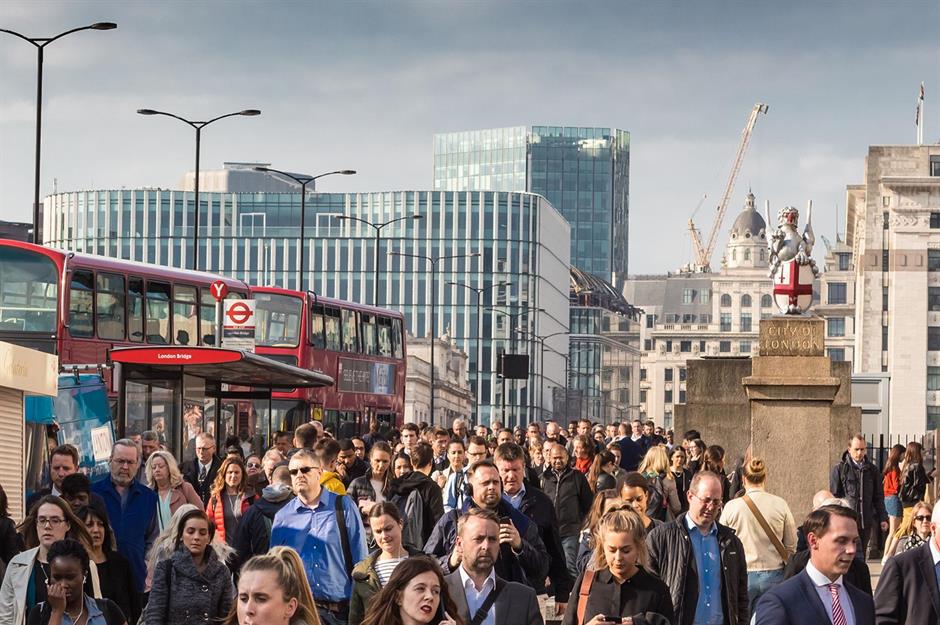
Think your working week is too long? It might actually be pretty short compared to the hours that people work in other countries around the world.
In fact, the idea of working 9-5 is a dream for many employees, with some regularly toiling away for more than 45 hours a week.
Read on for our countdown of the nations where people work the longest hours, based on the most recent data from the Organisation for Economic Co-operation and Development (OECD).
31st: Germany, 34.5 hours per week

In Germany, the average working week clocked in at 34.5 hours in 2022. This is both a small decrease from the 34.6 hours that Germans worked in 2021, as well as the shortest working week to feature on our list.
Full-time German employees are entitled to at least two days of paid holiday for each month they work.
30th: Finland, 35 hours per week

In Finland, the average working week was 35 hours in 2022, compared to 35.3 hours the year before.
While flexible working might be the next big thing elsewhere in the world, it's been a right for Finnish employees since the Working Hours Act was introduced in 1996.
As of January 2020, this law enables staff in most sectors to adjust their workday by starting or finishing up to four hours earlier or later.
Sponsored Content
29th: Austria, 35.1 hours per week

In Austria, the average working week was 35.1 hours in 2022, a small drop from the 35.2 hours recorded in 2021.
According to the Austrian Working Hours Act, a citizen's workweek must not exceed 60 hours, or more than 12 hours per day (including overtime), although there are some exceptions to this rule.
Austrian regulations also state that anyone who works more than six hours a day should be given at least a 30-minute break.
28th: Belgium, 35.2 hours per week

On average, Belgians worked 35.2 hours a week in 2022, compared to 35.3 in 2021.
Belgian law states that employees must not work more than eight hours a day. However, in November 2022 Belgium became the first country in Europe to legislate for a four-day working week, and employees now have the option of working up to 10 hours daily and one day less per week for the same pay if their employers agree.
27th: Iceland, 35.5 hours per week

Iceland's average working week was 35.5 hours in both 2021 and 2022.
The Nordic nation trialled a shorter working week between 2015 and 2019. Speaking to the BBC, think tank Autonomy described the experiment as an "overwhelming success", with data suggesting that while hours were reduced, workers' productivity remained the same.
Employees also reported higher levels of work satisfaction and general well-being, and took fewer sick days.
Sponsored Content
26th: Ireland, 35.6 hours per week
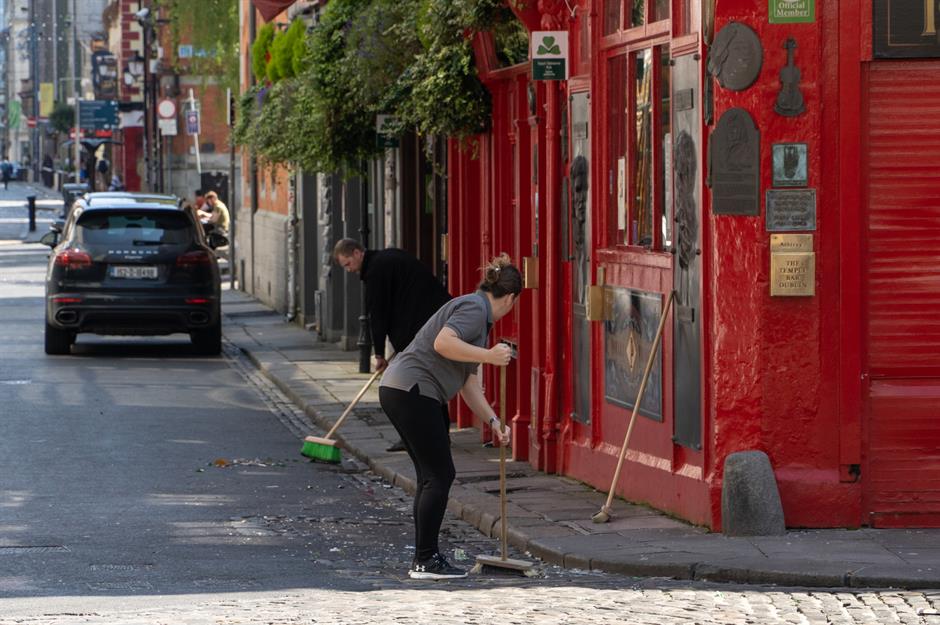
The average Irish working week was 35.6 hours long in 2022, a slight increase from the 35.4 hours recorded in 2021.
The maximum number of hours people in Ireland can work in a typical week is capped at 48, with the average working week calculated across a four-month period.
Those who work on a Sunday in Ireland are entitled to compensation, such as extra pay or paid time off.
Joint 24th: Canada, 35.7 hours per week

According to Statista, Canada's average working week was 35.7 hours long in both 2021 and 2022, a decrease from 35.8 hours in 2020.
The standard hours of work in Canada are eight hours per day and 40 hours per week, with anything exceeding this considered to be overtime.
In most instances, the maximum workweek allowed is 48 hours. Employees in Canada are also entitled to at least one full day of rest per week, which is usually a Sunday.
Joint 24th: Switzerland, 35.7 hours per week
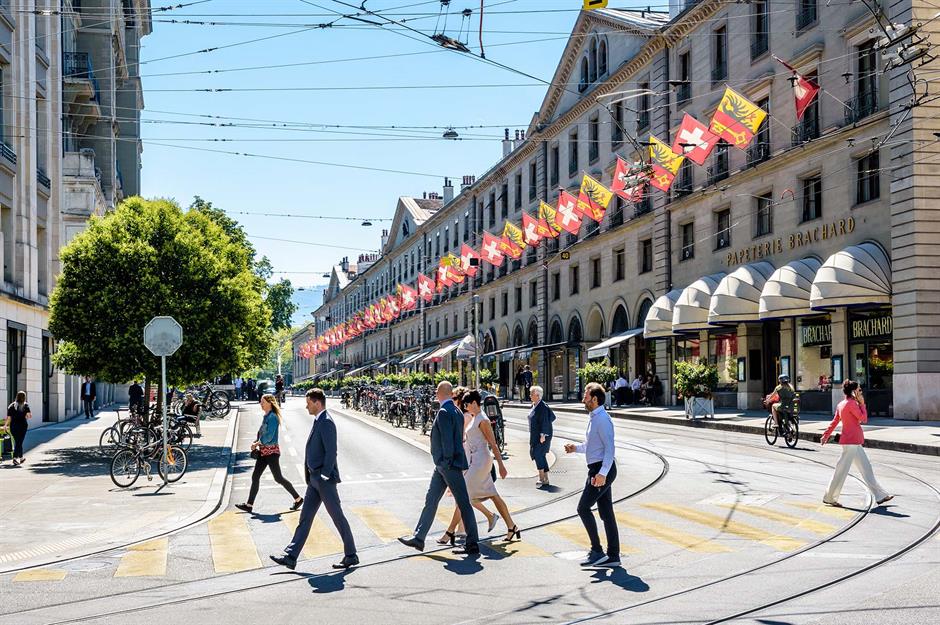
The average working week in Switzerland was 35.7 hours in 2022, having jumped from 34.7 to 35.8 between 2020 and 2021.
Swiss labour law sets out the maximum number of hours that different types of employees can work, with the threshold ranging from 45 to 50 hours per week depending on the industry.
Sponsored Content
23rd: Australia, 35.8 hours per week

According to the latest OECD data for Australia (which refers to 2018), the average working week is 35.8 hours long.
Australia's National Employment Standards (NES) state that the maximum working week should be 38 hours long, unless additional hours are reasonable, and it's normal for employees and employers to reach their own agreements.
Full-time employees in Australia are entitled to four weeks of paid annual leave.
22nd: Italy, 36 hours per week

Italians worked 36 hours per week in 2021 and 2022, an increase from 35.6 hours in 2020.
The normal working week in Italy is 40 hours, and employees must not work more than 48 hours per week.
Italy's labour laws don't mandate a minimum period of annual leave, although workers are entitled to time off to provide care or deal with family and personal matters, including marriage.
21st: France, 36.3 hours per week

The average working week in France was 36.3 hours long in 2022, an increase from 36.1 hours in 2021.
France is one of the few countries in the world where the average working week is longer than the legal standard, which, according to French labour laws, is 35 hours. Anything beyond this is considered overtime and should be compensated accordingly.
France implemented a "right to disconnect" law in 2017, which legally entitles employees to not respond to work-related correspondence outside of working hours.
Sponsored Content
Joint 19th: Spain, 36.6 hours per week

Spanish people worked for 36.3 hours per week on average in 2021, rising to 36.6 hours in 2022, with Spanish law mandating a maximum working week of 40 hours.
Spain scores highly for its work-life balance according to OECD data. Only 2% of the country's employees work what are considered to be "very long" hours (50 hours or more a week), a stark comparison to the OECD average of 10%.
Joint 19th: United Kingdom, 36.6 hours per week
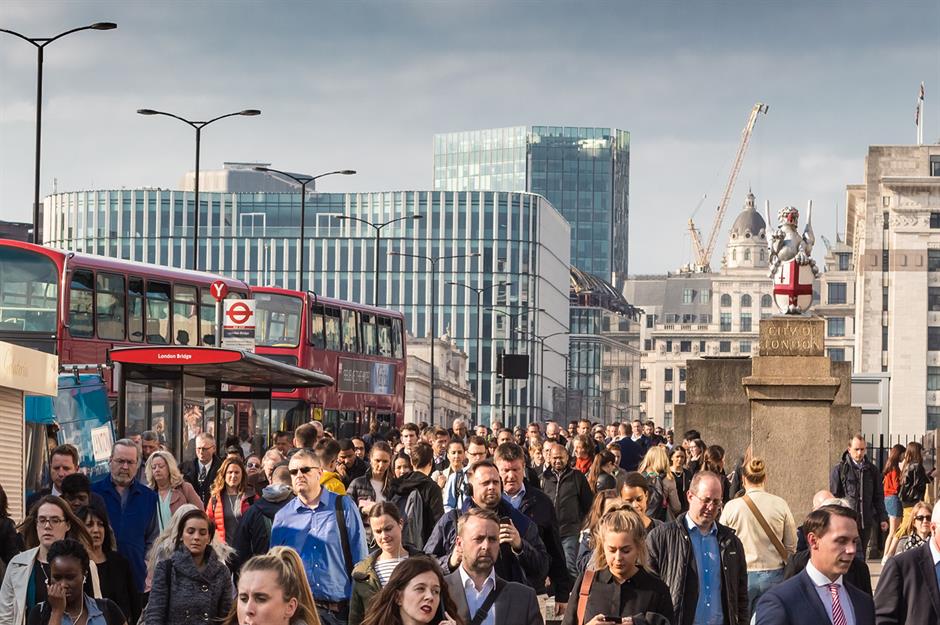
The average working week in the United Kingdom was 36.6 hours in 2022, the same length as in 2019 and 2020. Working hours briefly rose to 36.8 hours in 2021.
While people shouldn't work more than 48 hours a week in the UK on average, there are some exceptions to this rule, with emergency service workers permitted to work longer.
Workers also benefit from generous holiday entitlement, and almost all employees receive 5.6 weeks of paid leave per year.
18th: Estonia, 37.5 hours per week

The average working week in Estonia was 37.5 hours in 2022, a slight decrease from 37.7 hours in 2021.
Work that exceeds more than 40 hours per week is considered overtime and the average Estonian workweek can't top 48 hours.
Workers are entitled to a generous 28 days of paid holiday leave, which doesn't include national or public holidays.
Sponsored Content
17th: Sweden, 37.9 hours per week

The average Swedish employee worked 37.9 hours per week in 2022. That's a slight drop from 38 hours in 2021 and a sharp increase from 36.1 hours in 2020.
According to the country's Working Hours Act, regular working hours can't exceed 40 hours per week, while overtime shouldn't top 50 hours per calendar month.
Workers are entitled to a minimum of 25 days of paid holiday per year and can take 20 of these days as a continuous break between June and August.
Joint 15th: New Zealand, 38.1 hours per week

Workers in New Zealand can legally work a maximum of 40 hours per week.
In 2021, New Zealanders worked just 37.8 hours per week on average, compared to 37.9 the year prior. However, this figure jumped to 38.1 hours in 2022, with the country now ranking in joint 15th place.
Joint 15th: Luxembourg, 38.1 hours per week

In Luxembourg, standard employment must not exceed eight hours per day, or 40 hours per week.
In 2022 the country's workers had an average working week of 38.1 hours per week. Lucky Luxembourgers also enjoy 26 days of paid leave per year.
Sponsored Content
14th: Greece, 38.7 hours per week

A typical Greek employee clocked up 38.7 hours a week in 2022, a small decrease from 38.8 hours in 2021.
Any work that exceeds 40 hours per week is classed as overtime in Greece, and employees must be given a 20% increase on their hourly pay. In 2021, the maximum amount of overtime someone could work a year was increased from 120 hours to 150 hours.
If their daily working time exceeds six hours, Greek employees are given a minimum rest break of 15 minutes. Holiday entitlement in the country starts at 20 days and increases depending on the length of employment.
13th: United States, 38.8 hours per week

In America, employers are obliged to pay overtime for any working week that exceeds 40 hours. The US, however, is one of the few countries that does not guarantee paid time off, meaning it's left to employers to provide leave.
In terms of hours worked per week, the typical employee works less than the 40-hour limit, with the average working week sitting consistently at 38.8 hours since 2019.
12th: Slovak Republic, 39 hours per week
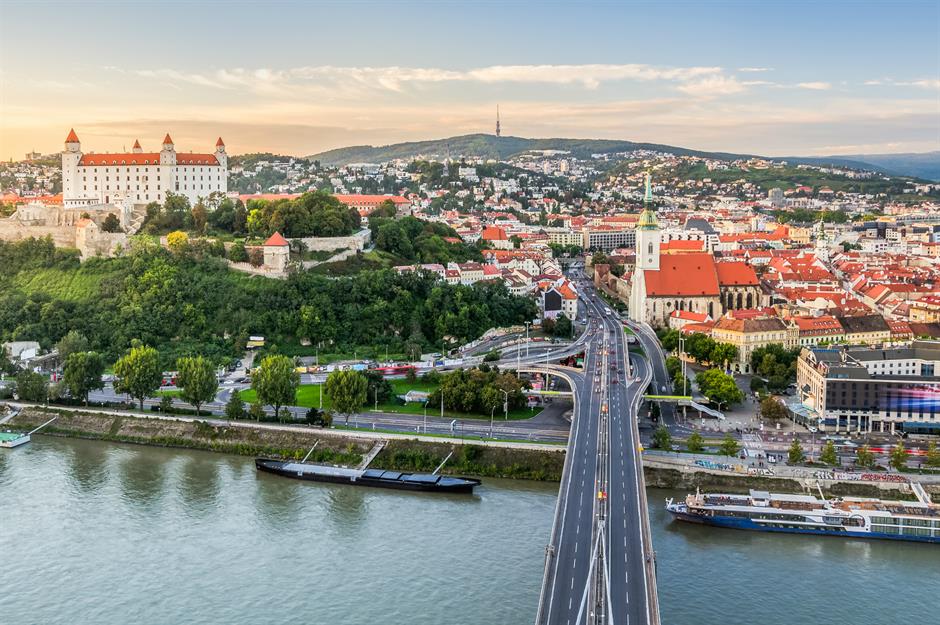
In the Slovak Republic, the average working week was 39 hours in both 2021 and 2022, a slight decrease from 39.3 hours in 2020.
The legal maximum someone can work is 40 hours a week, while shift workers can't exceed 38.75 hours a week.
Sponsored Content
Joint 10th: Latvia, 39.1 hours per week
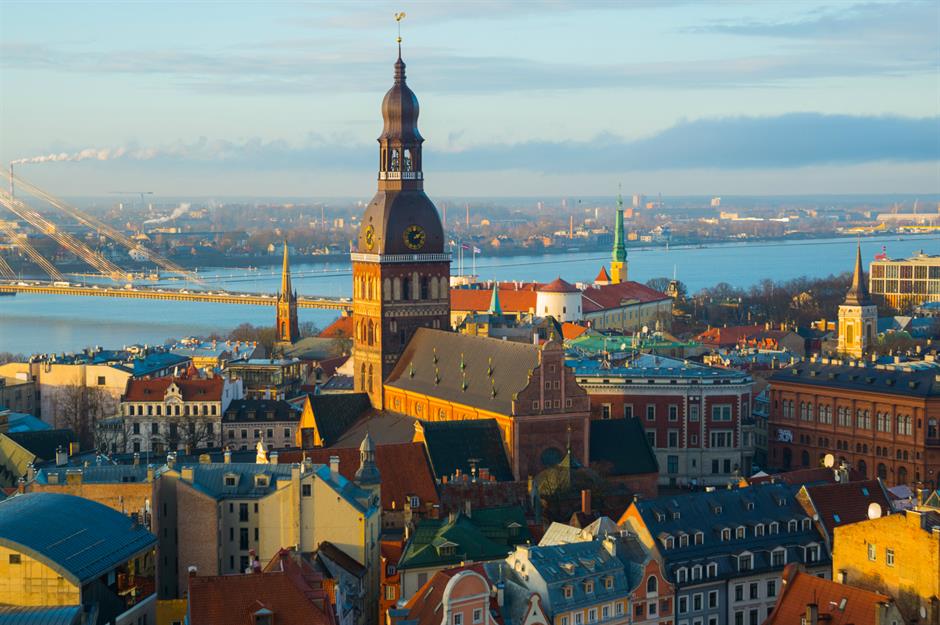
Officially speaking, Latvia has a five-day working week and employees are expected to work 40 hours. In 2022, however, the OECD recorded the average working week at 39.1 hours, a slight increase from 38.9 hours in 2021.
Any overtime must be consented to in writing by both the employee and their employer, and workers have the right to four weeks of paid vacation time, which doesn't include national holidays.
Joint 10th: Lithuania, 39.1 hours per week
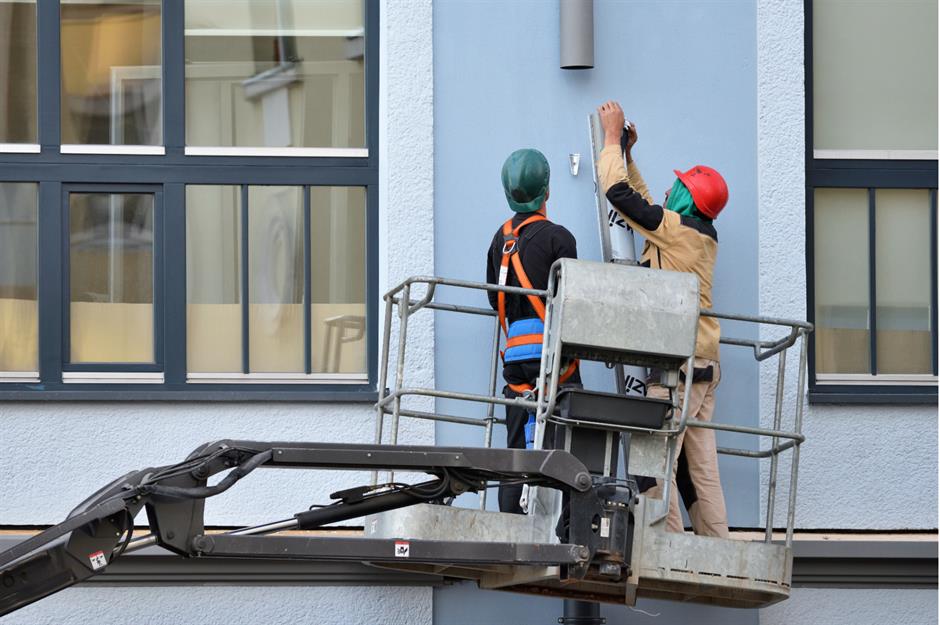
Labour codes in Lithuania state the working week must not exceed 48 hours over seven consecutive days.
While 48 hours is the maximum, the 2021 and 2022 weekly average was just 39.1 hours, a tiny increase of 0.1 hours from 2020.
Workers in the Baltic nation are also entitled to a minimum of 20 days of paid annual leave if they work five days a week. This increases to 24 days for those working six-day weeks.
9th: Slovenia, 39.2 hours per week

Slovenia officially follows the standard European 40-hour working week. In the private sector, however, Slovenians reportedly often work up to 10 hours a day.
In both 2020 and 2021, Slovenia's working week was 39.3 hours long on average. This dropped slightly to 39.2 hours in 2022.
Sponsored Content
8th: Hungary, 39.4 hours per week

A typical full-time workweek in Hungary is 40 hours, although employees worked 39.4 hours on average in both 2021 and 2022.
According to Hungarian labour laws, 250 hours of overtime is permitted per calendar year. Employees are also entitled to a minimum of 20 days of paid holiday each year.
7th: Poland, 39.5 hours per week

Working time in Poland must not exceed eight hours per day or more than 40 hours per week. Employees in the European nation worked an average of 39.6 hours per week in both 2020 and 2021, which fell slightly to 39.5 hours in 2022.
Workers are entitled to 20 days of paid leave, which increases to 26 days if their total employment period exceeds 10 years.
6th: Portugal, 39.6 hours per week

The legal working week is 40 hours in Portugal. That said, the average number of hours the Portuguese worked per week in 2021 and 2022 was 39.6, a slight increase from 39.3 hours per week in 2020.
Employees in Portugal are usually entitled to a rest period of at least 11 hours between two consecutive daily working periods.
In June 2023, it was announced that Portgual had begun a government-funded four-day workweek experiment, which will run for six months.
Sponsored Content
5th: Israel, 40.6 hours per week
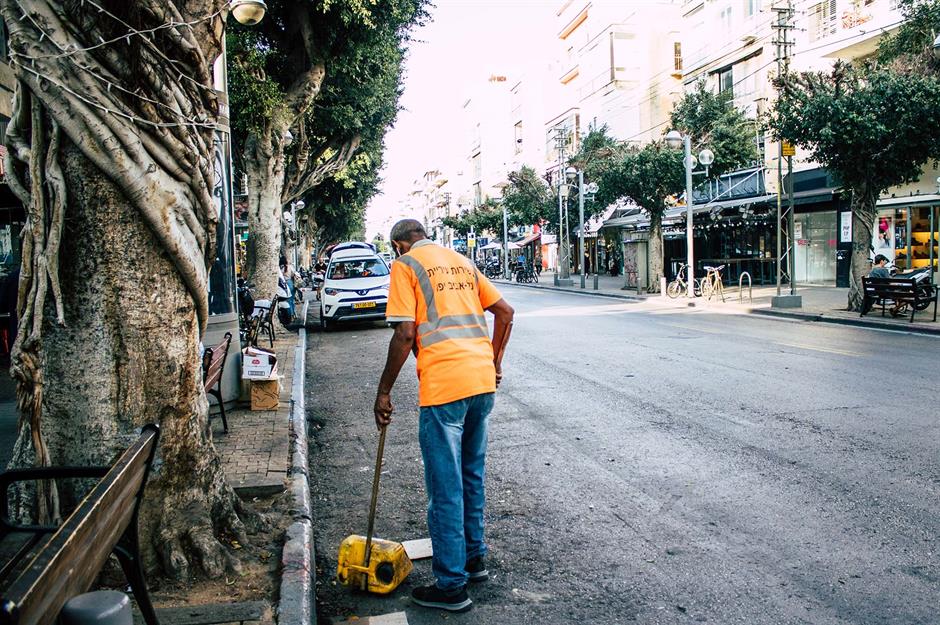
As of 2018, Israel's legal working week lost an hour, dropping from 43 hours to 42.
In 2022, people worked an average of 40.6 hours per week, a small decrease from 40.7 hours in 2021 and 40.8 hours in 2020.
4th: Chile, 42.6 hours per week

On average, employees in Chile spent 42.6 hours per week at work in 2022, a slight decrease from 42.7 hours in 2021.
Previously, the country's labour code stated that Chileans could legally work up to 10 hours a day and 45 hours per week. However, Chilean politicians unanimously approved a measure last April that will reduce the country's working week to 40 hours, with workers receiving the same pay.
3rd: Costa Rica, 44.5 hours per week

The average work week in Costa Rica is gruelling compared to the majority of other nations on our list, clocking in at 44.5 hours in 2022.
For the majority of workers in the country, the legal workweek is 48 hours long and divided into six eight-hour days. Employees are only entitled to one rest day per week, which usually falls on Sunday.
However, in 2022, the government introduced a "4 x 3" working week for the approximately 10% of Costa Rican workers who work on 24-hour production cycles. This change has enabled employees to work three 12-hour days a week, followed by three days off.
Sponsored Content
2nd: Mexico, 45 hours per week

Much like Costa Rica, the legal work week in Mexico is 48 hours long and comprises six eight-hour work days and one rest day.
Mexicans worked an average of 45 hours in 2022, up from 44.8 hours in 2021. Any employee who works for more than 48 hours in a week is entitled to additional pay.
Last April, the Mexican Chamber of Deputies approved a proposal to reduce the working week to 40 hours. If the bill is passed, anyone who works longer than 40 hours would have to be paid overtime.
1st: Colombia, 47.5 hours per week

Colombia is officially the hardest-working OECD nation in the world, with the typical employee's average working week lasting 47.5 hours in 2022.
While it might be the highest number on our list, it's actually a decrease from 2021, when Colombia's working week was a staggering 47.6 hours long.
The maximum legal work week is 48 hours over six days, with Sunday usually a mandatory rest day in the South American country. However, new legislation offers overworked Colombians some respite with plans afoot in the country to reduce the working week to 42 hours.
Now discover at what ages people really retire
Comments
Be the first to comment
Do you want to comment on this article? You need to be signed in for this feature